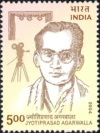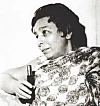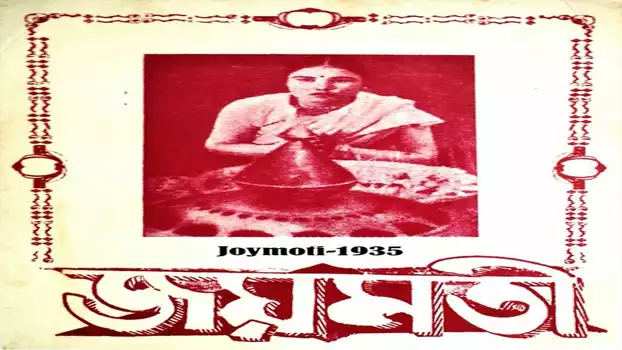Joymoti (1935)
March 10, 1935Release Date
Plot.
Where to Watch.
Cast & Crew.

Aideu Handique
Joymati (as Asaideo Handige)

Phanu Barua
Gada Paani

Swargajyoti Barooah
Dalimi (as Swargajyoti Datta)

Mohini Rajkumari

Manabhiram Barua

Phani Sarma
Gathi Hazarika

Subha Barowa
Spy (Surang Suwa)

Sneha Chandra Barua

Naren Bardoloi

Rana Barua

Shamshul Haque

Jyotiprasad Agarwala
Director / Adaptation / Producer / Original Music Composer

Bhopal Shankar Mehta
Cinematography

Lakshminath Bezbaruah
Original Story

Shamshad Begum
Playback Singer

Kamala Prasad Agarwala

Prafulla Chandra Barua

Banamali Das

Lalit Mohan Choudhury

Rajkumari Gohain

Pratap Barua

Putal Haque

Rajen Baruah
Media.

Details.
Release DateMarch 10, 1935
Original Nameজয়মতী
StatusReleased
Running Time57m
Genres
Last updated:
This Movie Is About.
Wiki.
Joymoti is a 1935 Indian film widely considered to be the first Assamese film ever made. Based on Lakshminath Bezbaroa's play about the 17th-century Ahom princess Joymoti Konwari, the film was produced and directed by the noted Assamese poet, author, and film-maker Jyoti Prasad Agarwala, and starred Aideu Handique and acclaimed stage actor and playwright Phani Sarma. The film, shot between 1933 and 1935, was released by Chitralekha Movietone on 10 March 1935 and marked the beginning of Assamese cinema.
Joymoti was screened at the 50th International Conference of the Society For Cinema and Media Studies (SCMC) of Northwestern University in Evanston, Illinois, United States in March 2011.
Other screenings include:
India-Bangladesh Joint Celebration of 100 Years of Indian Cinema, Dhaka (2012)
UCLA's Centre for India and South Asia Studies, Los Angeles (April 2010)
Osian-Cinefan's 10th Film Festival of Asian and Arabic Cinema, New Delhi (2008)
Filmbüro Baden Württemberg's Internationales Indisches Filmfestival, Stuttgart (2006)
Asiaticafilmidale (Encounters with Asian Cinema), Rome (2006)
Munich Film Festival (2006).
Although never a commercial success, Joymoti was noted for its political views and the use of a female protagonist, something almost unheard of in Indian cinema of the time.
The film was the first Indian talkie to have used Dubbing and Re-recording Technology, and the first to engage with "realism" and politics in Indian cinema. The original print containing entire length of the film was thought to be lost after India's division in 1947. However, in 1995, documentary film director Arnab Jan Deka managed to recover entire footage of the lost film at a Studio in Bombay in intact condition, and reported back the matter to Assam Government apart from writing about this recovery in Assamese daily Dainik Asam and English daily The Assam Express'. Meanwhile, some reels of another remaining print of the film maintained by Hridayananda Agarwala has been restored in part by Altaf Mazid.

